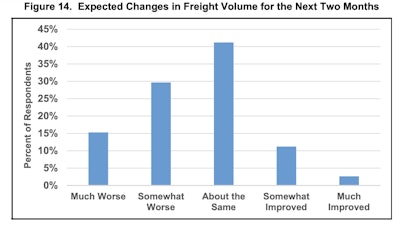
New research by two trucking industry organizations puts numbers to how the COVID-19 coronavirus outbreak has changed the daily lives of truckers and carriers.
Key takeaways from a survey released today by the American Transportation Research Institute and the Owner-Operator Independent Driver Association Foundation include:

- Local trips under 100 miles increased by more than 100 percent.
- Nearly 50% of respondents described freight levels as “somewhat” to “much” lower due to the COVID-19 outbreak
- Nearly 70 percent of specialized and tank truck operations were negatively impacted, especially smaller fleets.
- More than 40% of respondents said that truck parking was not any worse because of the COVID-19 pandemic.
- Detention for many generally did not change due to COVID-19, but owner-operators and small fleets experienced much worse detention delays compared to drivers for larger fleets. Fully a third of respondents said detention times had, in fact, gotten worse.
- Almost 80 percent of owner-operators and small fleets do not have any plan in place for managing operations during natural disasters.

“This research puts solid numbers to what we otherwise only suspected,” said Andrew King, research analyst for the OOIDA Foundation. “While we may be turning the corner on the COVID pandemic, we’re not out of the economic woods yet.”
Fully 71% of the 5,073 individuals responding to the survey were drivers. Of that number, 71% were 45 to 64 years old and 81% had drive 11 years or more.









